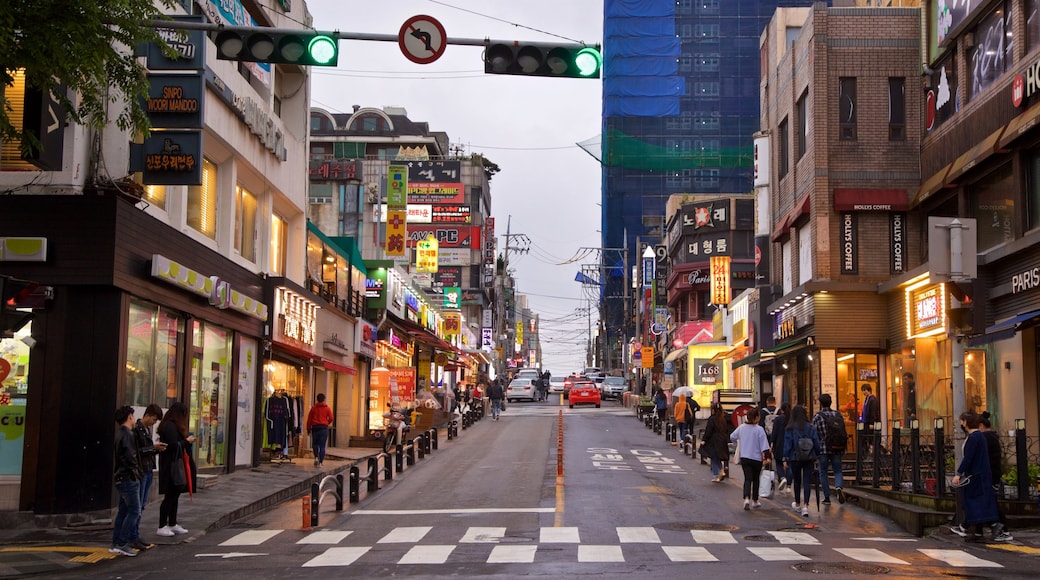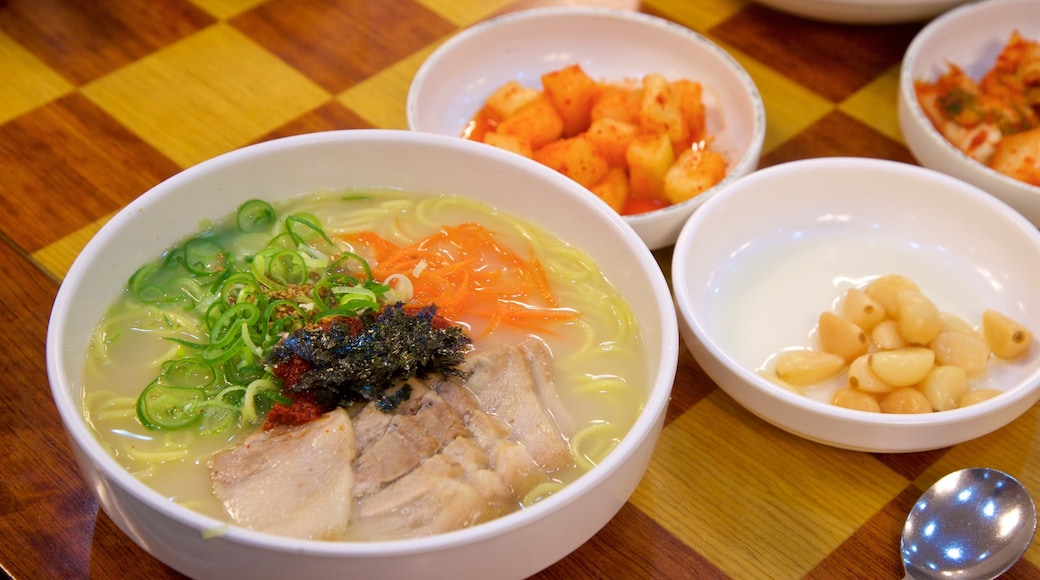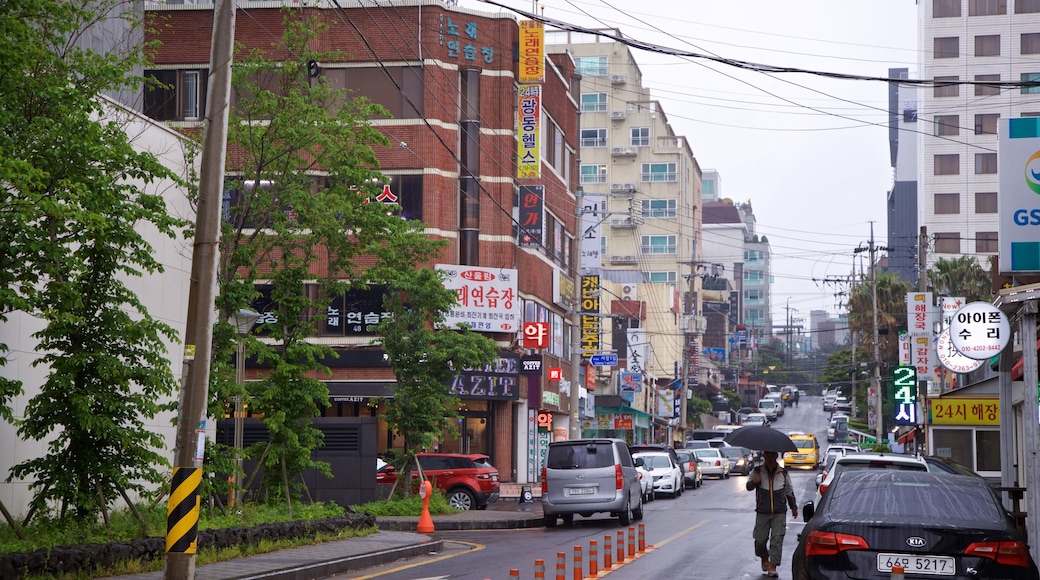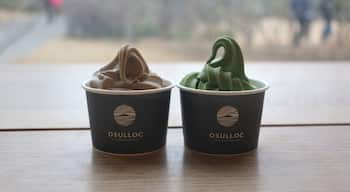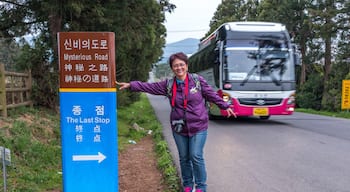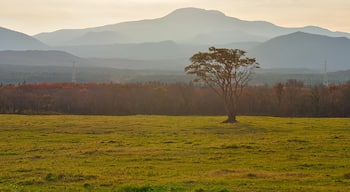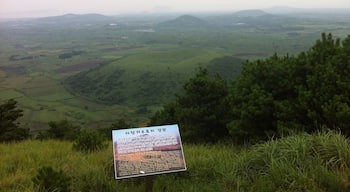Legend states that Jeju City (Jeju-si) is the place where three ancestral demigods rose from the ground to create the ancient Korean kingdom of Tamna. Today Jeju City is the capital of Jeju Province and the first stop on many traveler’s exploration of this island province in the East China Sea. Visit historical sights and discover a superb culinary scene. Relax on glorious beaches and hike to the summit of sacred mountains.
Start your visit at Samseonghyeol, a shrine dedicated to the mythological origins of the island. Learn about Jeju cultures at the Jeju National Museum and then walk up Sarabong Peak for great coastal views. A youthful ambiance abounds at the amusement arcades, bars, fashion outlets and restaurants on University Street. Sample mouthwatering sushi at Dongmun Market and barbecued black pork on Black Pork Street.
Bike, drive or walk along sections of the coastal road to Dodubong Peak and Iho Beach, notable for its horse-shaped lighthouses. Cross the Yongyeon Bridge to Yongduam Rock, a volcanic rock that resembles a dragon’s head. From here you can see haenyeo women divers catching seafood. Nearby Tapdong Street has a children’s theme park, fast food bars and sports courts.
Inland, 6,398-feet (1,950-meter) tall Hallasan Mountain dominates Hallasan National Park. Hike the park’s marked trails to lookouts, temples and waterfalls. See sex-themed sculptures at Jeju Love Land and experience the optical illusion of objects appearing to travel up the downward-sloping Mysterious Road. Hundreds of native trees and subtropical plant species are on display at the Halla Arboretum.
Reach Jeju City by flying to Jeju International Airport or catch a ferry from mainland Korea. Expect four distinct seasons, marked by hot and humid summers and cool winters with snowfall in the mountainous areas. Other island attractions are accessible via public buses and rented car. Be sure to visit the Jeju Folk Museum, Hallim Park botanical gardens, Sanbangsan Mountain and the Yongmeori Coast.
